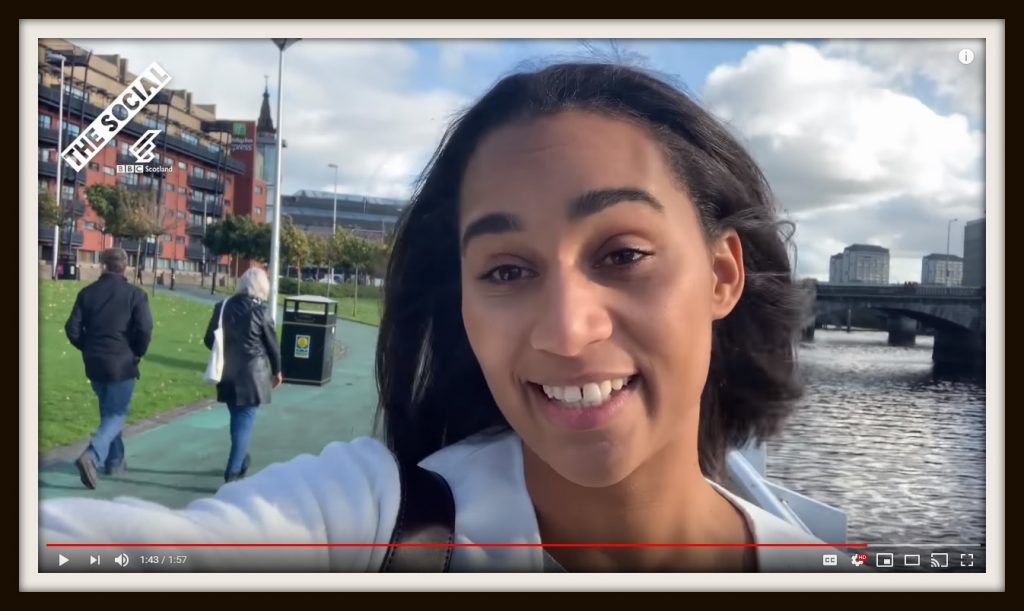Gallery with alias: PUBLIC_HISTORY_BLOG_POSTS not found

The BBC has pioneered the use of digital media as a means to examine cultural and social issues of our time—often through first-person reporting, perspectives, and narrative histories.
As we see in this insightful video short, “Glasgow’s Slavery Streets” (aka, “Glasgow’s Slave Trade Past Is All Around Us”), the BBC takes on the issue of historical representation in our everyday lives. A young person of African descent literally walks us through the Scottish city, prefacing her tour with a compelling personal statement: “Hi, my name is Laura and I’m going to tell you a little bit of why I see Glasgow differently to the majority of people who live here.”
The film’s short official explanation reads:
In Glasgow, so many streets are named after plantation owner who, in turn, owned hundreds of slaves. Glassford Street, Buchanan Street and many other iconic locations in Glasgow have a hidden slave trade history.
Truly, this video is of its time, not only in terms of meaning and message, but also form and function. Inasmuch as it is a powerful personal narrative (giving voice to Laura’s ethnic heritage and history), it is a tech-savvy, social media oriented production aimed at particularly contemporary (read: younger) audiences. Laura’s handheld selfie-styled camera angle is casual, informal, and as personal as your last FaceTime conversation with a friend. But keep this in mind, Laura’s just not talking to you, she’s speaking to the world. And that’s the power of digital media.
Now that the BBC has gotten your attention, “Glasgow’s Slave Streets” intends to question traditional expressions of public history (i.e., street signage) that have by and large remained unquestioned. The critical issues raised here around representations, reverence, and respect for Scotland’s slave-owners is akin to how we in America are questioning representations, reverence, and respect for our own slave-owning history. The video reveals that Scotland and America share this painful, inhumane history, but we also share a contemporary effort to understand, contextualize, and question this history through a modern lens.
But let’s be clear, the video in not intended to be objective journalism, nor is it dispassionate historical scholarship. Rather, this video is a provocative personal essay (i.e., one’s opinion supported by historical facts and research). In this case, Laura calls into question such knowledge that heretofore has been generally received and accepted at face value due to our long-standing social-cultural values and assumptions.
PUBLIC HISTORY MATTERS
At The Social Voice Project, we celebrate history and people through our community oral history projects that give us a chance to look, listen, and record the voices and stories of our time. We encourage all local historical societies and museums to capture, preserve, and share their communities’ lived experiences, memories, customs, and values. Future generations are depending on it.
Contact TSVP to learn more about our commitment to public history and community oral history projects.
MORE ESSAYS & THOUGHTS ON PUBLIC HISTORY

You must be logged in to post a comment.